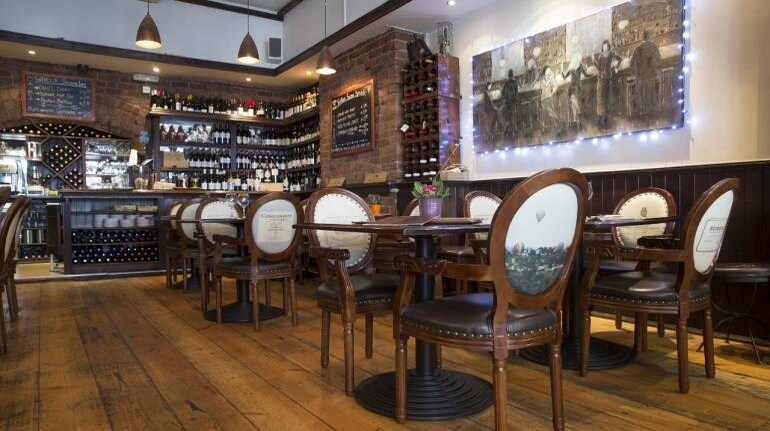



The COVID-19 pandemic is likely to cut 40-50 percent revenue of the country's organised dine-in restaurants this financial year, according to a report. Slow recovery should begin from June, Crisil Research said in a report.
Given low demand and social distancing norms, restaurants will operate at 25-30 percent of their monthly service levels in the first 45 days after lifting of the lockdown, it said.
Besides, with restrictions on gatherings and public movement likely to be extended again in Mumbai and Delhi-NCR (National Capital Region), curbs on dine-ins will continue, or they may be allowed to operate only at low service levels, it added.
"The organised sector has seen a 90 percent reduction in sales since the lockdown. Dine-in is not operational and online orders have declined 50-70 percent," Crisil Research Director Rahul Prithiani said.
"And when the lockdown is lifted, the rebound is expected to be only gradual. This holds especially for Mumbai and Delhi-NCR, which make up nearly half of the organised restaurant industry in India, but are red zones accounting for over 30 percent of the COVID-19 cases in India," Prithani added.
Organised restaurants account for 35 percent of India's restaurant industry, estimated at Rs 4.2 lakh crore in FY19.
Dine-ins are 75 percent of the organised restaurants, with online delivery or takeaways making up for the rest.
Dine-ins and public entertainment venues in Mumbai, NCR and Bengaluru have been shut since March 13-14, before the government announced the first lockdown on March 25.
Online delivery is available in select cities such as Mumbai, Delhi NCR, Bengaluru, Kolkata, Pune and Bhubaneswar, and that, too, at low service levels, the report said.
This will jeopardise the financial health of many restaurant operators and also due to high operating leverage, a 40-50 percent decline in revenue could lead to negative operating margins this fiscal, it said.
To manage liquidity constraints and cash flows, many restaurants are already seeking concessions or deferment of rentals.
Players with high debt levels will face pressure to shut unprofitable outlets to save costs and raise money.
Large players with low debt will be able to raise money, but business revival remains a big question for them, it added.
"Once the restrictions are lifted, restaurants will have to rework their business models and overcome operational challenges. With consumers turning more health-conscious, hygiene protocols at restaurants and supply chains will need to improve materially, which will increase cost," Crisil Research Associate Director Anjali Nathwani said.
The decline in restaurant revenues will, in turn, impact horticulture farmers, dairy producers, food processors, suppliers and logistics and delivery partners.
Unorganised food producers, many of which have high exposure to the restaurant sector, will be hit the hardest due to a sharp decline in bulk demand this fiscal.
Any further extension will aggravate the industry's woes, extending the recovery period further, it added.
Follow our full coverage of the coronavirus pandemic here.
Discover the latest Business News, Sensex, and Nifty updates. Obtain Personal Finance insights, tax queries, and expert opinions on Moneycontrol or download the Moneycontrol App to stay updated!
Find the best of Al News in one place, specially curated for you every weekend.
Stay on top of the latest tech trends and biggest startup news.